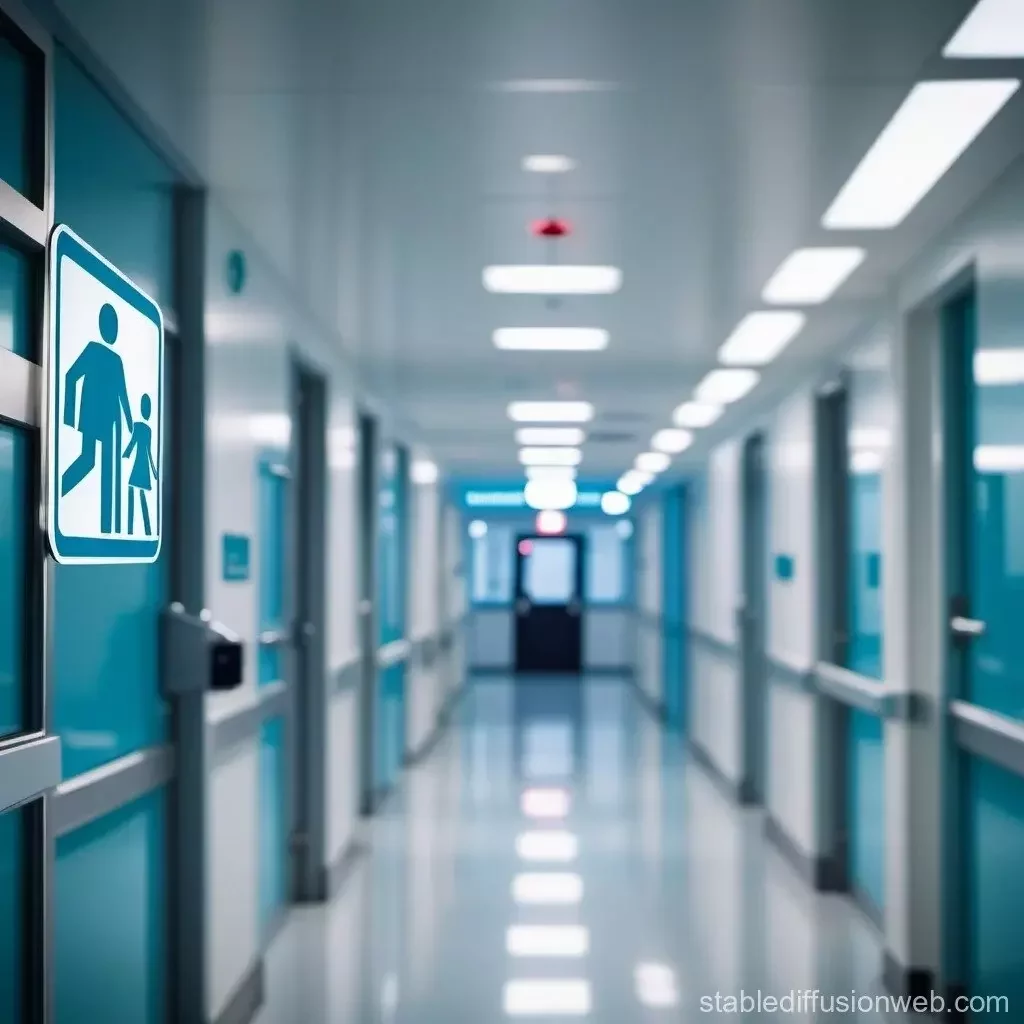
Successful Wayfinding Simplified
Hospital visits are often laden with anxiety, stemming from health concerns, unfamiliar environments, and the emotional strain of supporting loved ones. Amid these challenges, navigating the intricate layouts of medical facilities should not compound the stress. Wayfinding—the process of guiding visitors through physical spaces to their destinations—is a pivotal component of hospital management that directly influences patient experience and operational efficiency. Despite numerous solutions over the years, a definitive improvement in the wayfinding process and patient satisfaction has remained elusive.
This blog introduces a groundbreaking solution poised to elevate HCAHPS scores: SecureFlow by Readiness Rounds. We will delve into why patient experience, particularly through the lens of wayfinding, is crucial for hospitals today. Additionally, we'll provide a comprehensive checklist of common wayfinding solutions to help evaluate and enhance your current approaches.

Podcast Clip: Wayfinding Simplified
- SecureFlow for Hospital Wayfinding and HCAHPS Improvement.wav00:00
Table of Contents
Why Patient Experience Matters — Impact on HCAHPS Scores & The Role of Visitors in Patient Feedback
Introducing SecureFlow by Readiness Rounds — Key Features and Benefits
The Wayfinding Issue — Common Challenges in Hospital Navigation
The SecureFlow Solution — Simplifying Wayfinding with Digital Tools
Current Wayfinding Solutions — Checklist of Common Approaches
Current Wayfinding Challenges — Layout Complexity, Inconsistent Signage, and More
Leveraging Technology for Effective Wayfinding — Mobile Apps, Kiosks, and Digital Signage
The Role of Human Assistance — Enhancing Wayfinding with Staff and Volunteers
1. Why Patient Experience Matters: It’s the Visitors
Patient experience is a cornerstone of modern healthcare, influencing not only the well-being of individuals but also the reputation and financial health of medical institutions. Central to patient experience is the CMS HCAHPS star ratings, a vital metric that hospitals strive to excel in.
These ratings are significantly shaped by patient feedback, encompassing various aspects of their hospital visit, including their ability to navigate the facility. Visitors frequently complete post-discharge surveys, and their experiences with wayfinding directly affect their responses. A convoluted navigation process can lead to frustration, resulting in negative survey feedback that tarnishes the hospital’s ratings and reputation. In contrast, a seamless wayfinding experience can enhance patient satisfaction, foster trust, and improve overall ratings.
2. Introducing SecureFlow by Readiness Rounds
SecureFlow by Readiness Rounds emerged from the urgent needs highlighted by the COVID-19 pandemic. Initially designed to manage temperature evaluations and wellness attestations through entry kiosks, SecureFlow has since evolved into a comprehensive visitor and management system tailored specifically for hospitals. Developed by hospital specialists, SecureFlow embodies industry-leading technology that addresses the multifaceted challenges of hospital wayfinding.
Key Features of SecureFlow
Real-Time Visitor List: Maintains an up-to-the-minute record of all visitors, enhancing security and management.
Visitor Volume Management: Regulates the number of visitors to prevent overcrowding and ensure a comfortable environment.
Alerts for Banned Individuals: Instantly notifies security if a prohibited person attempts to enter, bolstering hospital safety.
Evacuation Management Support: Facilitates efficient visitor evacuation during emergencies, ensuring safety and compliance.
Visiting Hours Management: Controls and enforces visiting hours, maintaining order and reducing disruptions.
Vendor Management: Streamlines vendor credentialing, entry, and presence within the hospital premises.
Our extensive experience at hospital entrances and client feedback have underscored a critical gap: effective wayfinding remains a persistent issue. Numerous strategies and considerable frustration have yet to yield a definitive solution. SecureFlow addresses this gap by integrating digital wayfinding with robust visitor management.
3. The Wayfinding Issue
The journey through a hospital can be daunting. Visitors check in, receive a badge, and often rely on verbal directions to reach their destinations. However, despite these initial steps, many find themselves lost within ten minutes of arrival. This confusion not only prolongs the visit but also heightens stress levels, detracting from the overall patient experience.
Common Wayfinding Challenges
Complex Hospital Layouts
Inconsistent Signage
Technological Barriers
High-Stress Environment
These challenges highlight the need for a holistic, integrated approach to wayfinding—one that combines physical, digital, and human-centric solutions to create a seamless navigation experience.
4. The SecureFlow Wayfinding Solution
SecureFlow revolutionizes hospital wayfinding by addressing the core issues that contribute to visitor stress. Upon arrival and after check-in, visitors receive a text message with a link to written, bi-lingual instructions tailored to their specific destinations within the hospital.
Benefits of SecureFlow's Wayfinding
No Asking for Directions
No Apps Required
No Paper
No Complexity
Less Stress
HCAHPS Improvement
SecureFlow ensures that visitors can navigate hospitals effortlessly, transforming their journey from stressful to seamless.
5. Current Wayfinding Solutions: Pros & Cons
Enhance Signage
PROs: Clear, well-placed, and multilingual
CONs: May become outdated
Leverage Technology
PROs: Kiosks, digital signage, mobile apps
CONs: User adoption and technical literacy
Train Staff & Volunteers
PROs: Personalized assistance
CONs: Availability and consistency
Provide Printed Instructions
PROs: Familiar and cost-effective
CONs: Rapid obsolescence
Deploy Digital Solutions like SecureFlow
PROs: SMS-based, no apps, real-time
CONs: Requires integration
Establish a Wayfinding Task Force
PROs: Ensures continuous improvement
CONs: Needs ongoing leadership buy-in
6. Current Wayfinding Issues
The Complexity of Hospital Layouts
Requires physical + digital + human solutions
Expansions/renovations add confusion
Visitors under stress need extra support
Inadequate and Inconsistent Signage
Must be strategically placed and uniform
Needs regular updating
Language Barriers and Multilingual Needs
Multilingual signs improve access
Need for accurate translation and maintenance
Accessibility for All
Braille, audible, and tactile signage
Inclusive design must be maintained
7. Leveraging Technology for Wayfinding
Technology offers promising solutions for enhancing wayfinding, but it comes with its own set of challenges.
Mobile Apps
PROs: Personalized, real-time info
CONs: Low adoption due to app fatigue
Interactive Kiosks
PROs: Digital guides with maps and audio
CONs: Technical issues and limited availability
Digital Signage
PROs: Real-time, dynamic displays
CONs: Limited impact without complementary tools
8. The Human Touch: Staff Assistance and Volunteer Programs
Human assistance remains a cornerstone of effective wayfinding in hospitals, because:
Personal interaction reduces stress
However:
Inconsistencies due to availability and training
Human assistance is invaluable but should be integrated with technological and physical wayfinding solutions to maximize effectiveness and consistency.
9. Conclusion
Effective wayfinding is essential for a positive visitor experience in hospitals. Despite various approaches, no single solution solves all issues. By combining physical signage, digital tools, and human assistance, hospitals can significantly reduce navigation stress and improve satisfaction—ultimately boosting HCAHPS scores.
In Summary, Hospitals Should:
Enhance Signage
Leverage Technology
Train Staff and Volunteers
Provide Printed Instructions
Deploy Digital Wayfinding like SecureFlow
Establish a Wayfinding Task Force
Ready to Transform Your Hospital's Wayfinding?
Discover how SecureFlow by Readiness Rounds can streamline navigation, reduce visitor stress, and elevate your HCAHPS scores.
👉 Get an Expert Consultation
👉 Explore SecureFlow's Impact on HCAHPS
Sources
Independent Sources
MOA Architecture:https://www.moaarch.com/thought_leadership/wayfinding-strategies-healthcare-design/
HealthSpaces:https://info.healthspacesevent.com/blog/7-steps-for-effective-wayfinding-in-healthcare
Readiness Rounds Resources
SecureFlow Product Page: https://www.readinessrounds.com/secureflow-home
